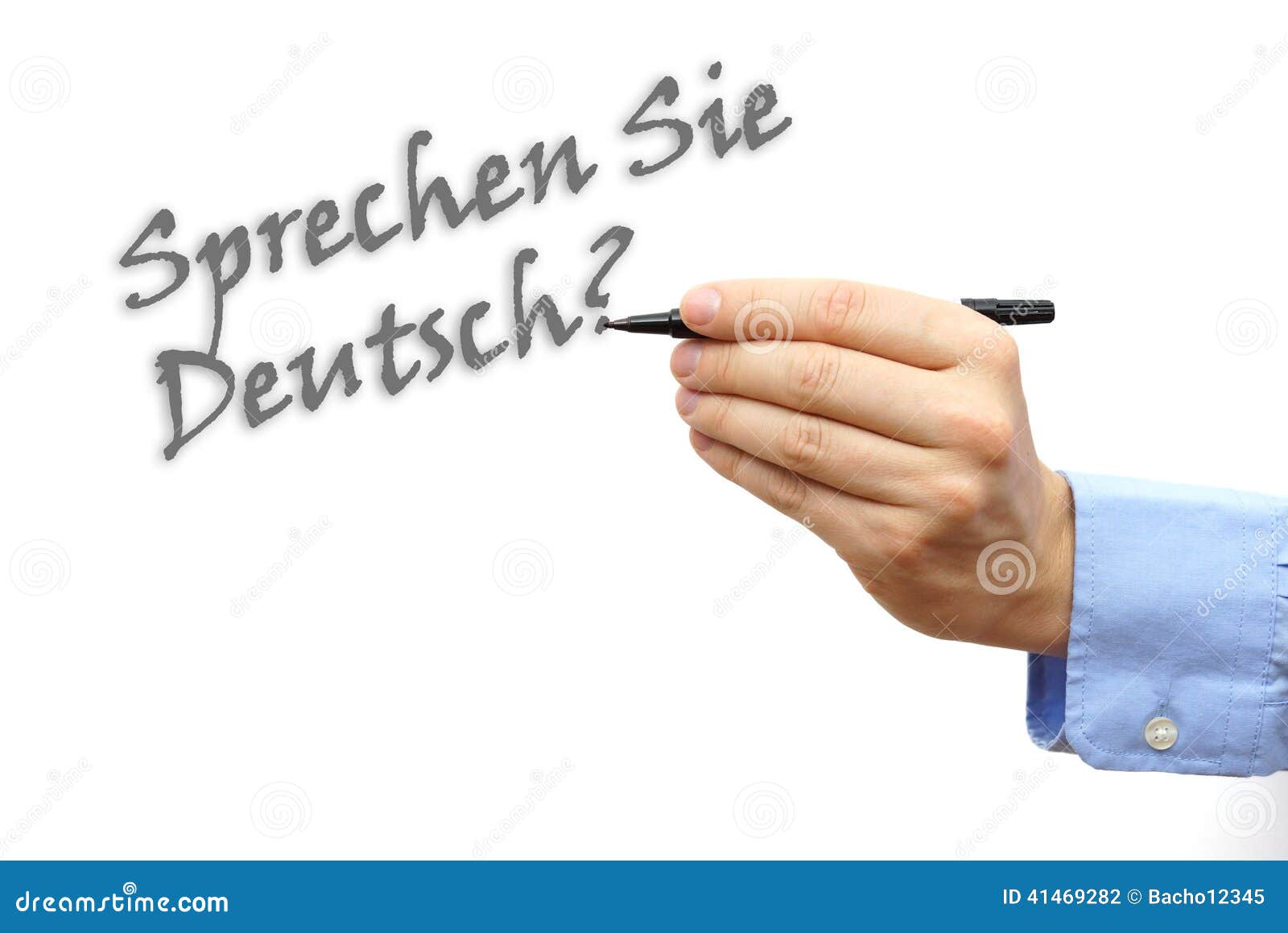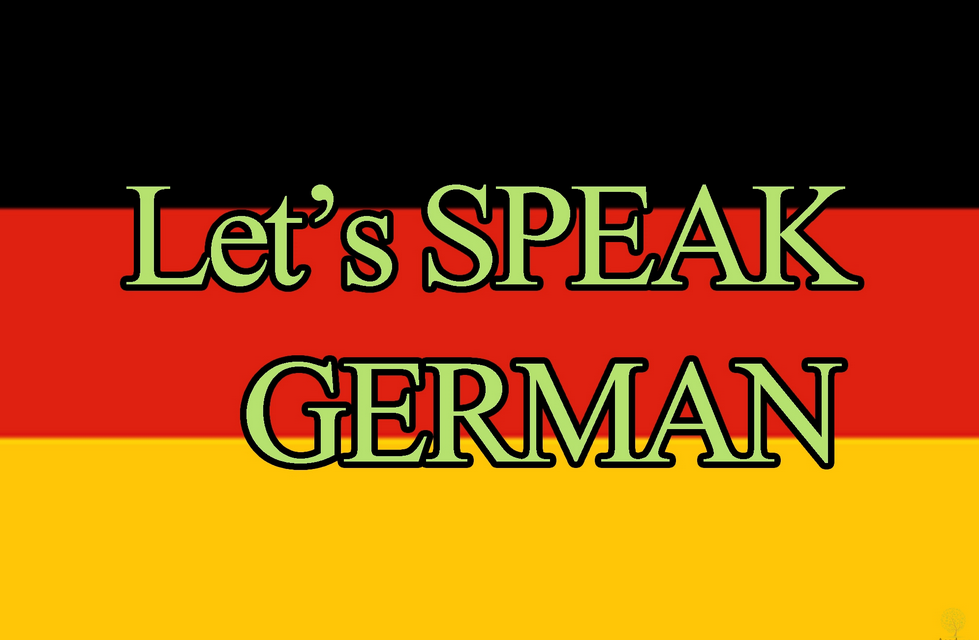Do you speak german in german language – In the tapestry of human interaction, language serves as the vibrant thread that connects us. When venturing into the realm of German-speaking cultures, mastering the art of asking “Do you speak German?” is paramount. This phrase, “Sprechen Sie Deutsch,” holds profound significance, not only as a means of communication but also as a reflection of German etiquette and cultural norms.
Throughout this exploration, we will delve into the nuances of this essential phrase, examining its usage in various contexts, exploring its regional variations, and unraveling its cultural significance. Along the way, we will uncover the subtleties of polite variations, the importance of non-verbal cues, and the implications for German language learners.
German Phrase Breakdown
The German phrase “Sprechen Sie Deutsch” is a common way to ask someone if they speak German.
Literally translated, the phrase means “Do you speak German?”.
Literal Translation
The phrase is made up of the following words:
- Sprechen (verb): to speak
- Sie (pronoun): you (formal)
- Deutsch (noun): German
Usage and Context
The phrase “Sprichst du Deutsch?” is commonly used in various situations in German-speaking countries. It is an appropriate and polite way to inquire about someone’s proficiency in German, especially in settings where it is relevant or necessary.
Appropriate Settings
This phrase is suitable for use in the following contexts:
- When meeting someone for the first time, particularly in a professional or formal setting, to determine if German is their preferred language of communication.
- In shops, restaurants, or other service-oriented businesses to inquire if the staff speaks German.
- When traveling to German-speaking countries, to ask locals for directions, information, or assistance.
- In educational institutions, such as schools or universities, to assess students’ German language skills.
- In social gatherings, to initiate a conversation or to gauge the level of comfort with the German language among attendees.
Polite Variations

When inquiring about someone’s proficiency in German, there are several polite variations you can employ to demonstrate respect and courtesy.
The choice of variation depends on the formality of the situation, the relationship between the speakers, and the speaker’s personal style.
Formal Variations
In formal settings, such as business meetings or interactions with strangers, it is appropriate to use more formal variations of the question “Do you speak German?”
- Sprechen Sie Deutsch?(formal, respectful)
- Können Sie Deutsch sprechen?(slightly less formal, but still polite)
Informal Variations
In informal settings, such as among friends or acquaintances, more casual variations of the question are acceptable.
- Sprichst du Deutsch?(informal, used when addressing someone directly)
- Kannst du Deutsch sprechen?(informal, used when addressing someone directly)
Cultural Significance
The phrase “Sprechen Sie Deutsch?” holds significant cultural importance in German-speaking countries. It reflects the politeness and formality prevalent in German communication norms and etiquette.
German Etiquette and Communication Norms
In German culture, addressing someone directly with the informal “du” (you) is generally reserved for close friends, family, and children. When interacting with strangers, colleagues, or acquaintances, it is considered polite and respectful to use the formal “Sie” (you) and the corresponding verb conjugations.
The phrase “Sprechen Sie Deutsch?” exemplifies this etiquette. By using the formal “Sie” and the polite form of the verb “sprechen” (to speak), the speaker demonstrates respect for the person being addressed and acknowledges their potential unfamiliarity with the German language.
Moreover, asking someone if they speak German is often seen as a sign of cultural sensitivity and a desire to communicate effectively. It shows that the speaker is aware of the language barriers that may exist and is willing to accommodate the other person’s linguistic needs.
Regional Variations
The German language exhibits a rich tapestry of regional variations in both pronunciation and usage, reflecting the diverse cultural and linguistic heritage of German-speaking regions. These variations can manifest in subtle nuances of intonation, vocabulary, and grammar.
Northern and Southern Germany
One of the most noticeable regional variations lies between Northern and Southern Germany. Northern dialects, such as those spoken in Hamburg and Berlin, tend to feature a more clipped and direct pronunciation, with a strong emphasis on vowel sounds. In contrast, Southern dialects, such as those found in Bavaria and Austria, are characterized by a softer, more melodic intonation, with a more prominent use of diphthongs.
Eastern and Western Germany, Do you speak german in german language
The division of Germany into East and West during the Cold War era has also left its mark on the language. Eastern dialects, influenced by Slavic languages, exhibit certain grammatical and vocabulary differences from their Western counterparts. For example, the definite article “der” is often pronounced as “dä” in Eastern Germany.
Influence of Minority Languages
In regions where minority languages are spoken, such as Frisian in Northern Germany or Sorbian in Eastern Germany, the local dialect may incorporate elements of these languages. This can lead to unique pronunciations, vocabulary, and even grammatical structures.These regional variations are not merely linguistic curiosities; they reflect the cultural and historical diversity of German-speaking regions.
They serve as a testament to the richness and dynamism of the German language, which continues to evolve and adapt in response to its vibrant regional contexts.
Formal and Informal Contexts: Do You Speak German In German Language
In formal settings, the phrase “Sprechen Sie Deutsch?” is typically used in a polite and respectful manner. It is common to address the person you are speaking to using the formal “Sie” (you) and to maintain a professional tone. For example, when interacting with a business associate or a government official, you would use the formal version of the phrase.In
informal settings, such as among friends or family members, the phrase can be used in a more casual and relaxed manner. The informal “du” (you) is typically used in these situations, and the tone of the conversation is generally more relaxed and friendly.
Non-Verbal Cues
Non-verbal cues play a significant role in enhancing the meaning and intent of the phrase “Sprechen Sie Deutsch?” These cues provide additional context and nuance, allowing the speaker to convey their message more effectively.
One common non-verbal cue is eye contact. When someone asks “Sprechen Sie Deutsch?” while making direct eye contact, it typically indicates a genuine desire to engage in a conversation. However, if someone avoids eye contact while asking the question, it may suggest a lack of interest or confidence.
Facial Expressions
Facial expressionscan also convey important information. A warm and friendly smile while asking “Sprechen Sie Deutsch?” creates a more welcoming and approachable atmosphere. On the other hand, a neutral or stern expression may indicate a more formal or business-like interaction.
Gestures
Gesturescan further enhance the meaning of the phrase. For example, if someone asks “Sprechen Sie Deutsch?” while gesturing towards a German-speaking country or object, it can help clarify the context of the question.
Language Learning Implications

Learning the phrase “Do you speak German?” is crucial for German language learners as it establishes a foundation for effective communication. By mastering this essential phrase, learners can initiate conversations, seek assistance, and navigate social situations confidently.Understanding the nuances of the phrase, including its formal and informal variations, enables learners to adapt their language use to different contexts.
Moreover, the phrase serves as a gateway to exploring German culture and customs, fostering a deeper appreciation for the language and its speakers.
Facilitating Communication
The phrase “Do you speak German?” empowers learners to initiate conversations with native speakers, breaking down language barriers and creating opportunities for meaningful interactions. By asking this question, learners can assess the language proficiency of others and determine the most appropriate way to communicate.
Cultural Understanding
Beyond facilitating communication, the phrase also holds cultural significance. By using the correct form of the question in different situations, learners demonstrate their respect for German customs and etiquette. This awareness of cultural norms enhances their ability to connect with native speakers on a deeper level.
Closure
As we conclude our journey into the intricacies of “Sprechen Sie Deutsch,” we recognize its power to bridge cultural divides and facilitate meaningful connections. By embracing the nuances of this phrase, we not only enhance our communication skills but also demonstrate our respect for German-speaking communities.
May this guide serve as a valuable resource as you navigate the linguistic landscape of German-speaking countries, fostering understanding and building bridges across cultures.
General Inquiries
What is the literal translation of “Sprechen Sie Deutsch”?
It translates to “Do you speak German?”
When is it appropriate to use “Sprechen Sie Deutsch”?
It is generally used in formal settings or when addressing someone you do not know well.
Are there any polite variations of “Sprechen Sie Deutsch”?
Yes, such as “Entschuldigen Sie, sprechen Sie Deutsch?” (“Excuse me, do you speak German?”)
